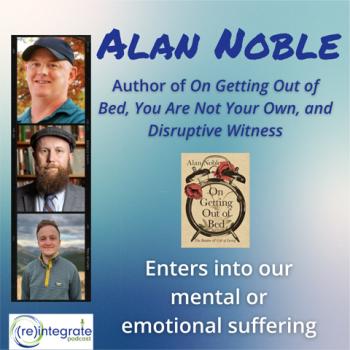“When you find yourself having to choose between depending on somebody else to get an important task done or taking matters into your own hands, which do you prefer?”
I asked this question to a group of men and women in one my church’s Sunday school classes. Just about everybody said that they would rather do the task themselves! Why?
“By the time I tell somebody how to do it, I could get the job done myself,” said one man, referring to his position at work, where he has authority to delegate but finds himself not doing it enough.
“Very rarely will somebody else do the job right,” said one woman, who admitted that she even has trouble relinquishing to her husband the task of preparing lunches. It seems that he once committed the terrible sin of putting too many cucumbers on the salad. We all had a great laugh over that.
Okay. I’ll admit it for all of us: We are control freaks. We cannot and will not trust others. We want to have authority over every aspect of our lives, even sometimes down to the proper cucumber-to-lettuce ratio.
Why is it that I do not trust others? If you’re like me you’ve been burned enough by others that you have trained yourself to not depend on others. Too many times, I’ve depended on somebody else to do something and they have failed. I’ve even had my superiors at work blame me for their failure.
Burn me once, shame on you; burn me twice, shame on me. But not always—sometimes that first burn is scorching. So we decide not to risk another burn. We make it our habit to keep people from being a part of what we’re doing.
But when I consistently try to go it alone, I find myself very lonely. I feel like a shrub in the desert, parched of the fresh water of relationship. We are not meant to do everything on our own. Our caution about depending on others does more harm than good.
Let’s think for a moment about how this cautiousness affects our relationship with God. Let’s face it: God is yet another person that we are told to depend upon. We understand in our minds that God isGod, trustworthy in all he promises and faithful in all he does (Psalm 145:13). But we’ve been burned too many times by people over the years. It is difficult to let that belief in the trustworthiness of God inch its way down into our hearts; how do we really know that he is different? We’ve all had those frustrating times when we’ve prayed for God to do something for us and that prayer went unanswered. So, that’s that! Back to depending just on myself.
That only leads to further frustration, because depending solely on ourselves is simply not sustainable. We are too bogged down by sin. We need resources beyond ourselves.
The LORD spoke to Jeremiah about this. And these words are as applicable to me in my 21st Century work world as they were 2,600 years ago.
5 Thus says the LORD:
“Cursed is the man who trusts in man
and makes flesh his strength,
whose heart turns away from the LORD.
6 He is like a shrub in the desert,
and shall not see any good come.
He shall dwell in the parched places of the wilderness,
in an uninhabited salt land.
7 “Blessed is the man who trusts in the LORD.
whose trust is the LORD..
8 He is like a tree planted by water,
that sends out its roots by the stream,
and does not fear when heat comes,
for its leaves remain green,
and is not anxious in the year of drought,
for it does not cease to bear fruit.” (Jeremiah 17:5-8)
There is a stark contrast between trusting in God and not trusting in God. Trust is, and always hasbeen, the main issue between us and God. In the beginning, the first humans failed to trust God. They believed the serpent’s lie that God was holding out on them, that the only reason God commanded not to eat that specific fruit was because “God knows that when you eat from it your eyes will be opened, and you will be like God, knowing good and evil.” So they did not trust God, and look at the sad consequences.
And then Jesus Christ comes, God himself walking among us people, and makes this startling statement: “Don’t let your hearts be troubled. Trust in God, and trust also in me” (John 14:1). The way of salvation is not just to “believe” a set of theological propositions, but to actually trust that Jesus is who he claimed to be—the Lord and savior of the creation and of each one of us (John 20:31). The Old Testament was about trust, and the New Testament is about trust.
When I pray, I am often guilty of seeking to have God do what I want because of my need to be in control. I am fickle—I will trust God only when he agrees with me that my ways are best. I need to shift my perspective: If my prayer goes unanswered, am I going to be disappointed because God did not do what I wanted him to do? Does that mean that God is not trustworthy? No. I cannot know all that he knows; I cannot fathom the mysteries of God (Job 11:7-9).
So, I have to look at myself in the mirror—at the face of this control freak—and ask, “Who do you trust?” There are great consequences in how I honestly answer that question.
Do I trust merely in myself and/or the ways of my upbringing and the ways the world says I should deal with life?
Or will I relinquish my control and trust in God?
What about you?












